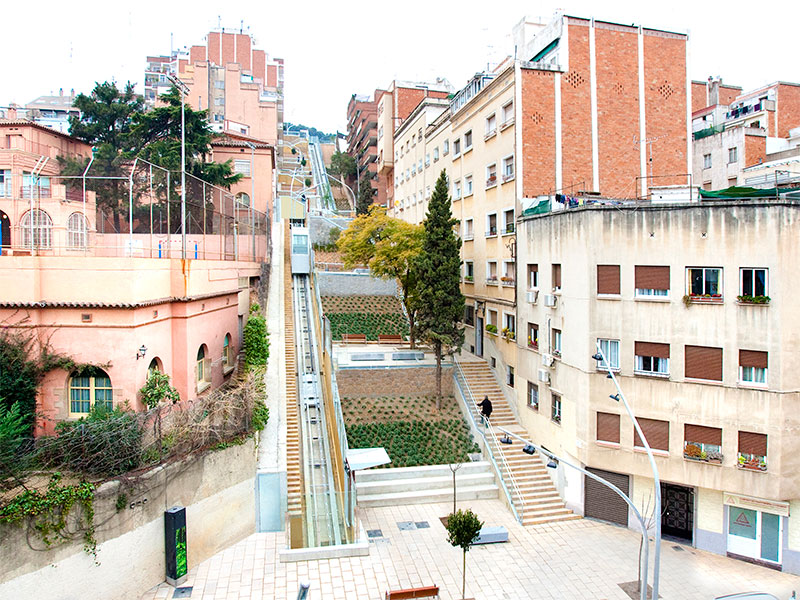Informative Note. Neighborhoods Act Grants. Decree 163/2025, of July 29, implementing Law11/2022
Published: 8 de September de 2025
On July 30, 2025, Decree 163/2025, of July 29, was published in the DOGC. This decree implements Law 11/2022, of December 29, on urban, environmental and social improvement of neighborhoods and towns. It establishes the regulatory basis for grants aimed at integrated urban regeneration actions, enabling future calls for applications. It also creates the Technical Office for Neighborhoods and Towns, as a new support and coordination instrument with local authorities.
1. Pupose and Objective of the Grants
The grants aim to finance comprehensive actions that contribute to:
- The urban, social, and environmental improvement of neighborhoods and towns.
- The reduction of territorial inequalities.
- Social cohesion and environmental sustainability.
- The promotion of inclusive and healthy urban planning, with special attention to vulnerable groups.
The grants will be awarded through future public competitive calls, based on evaluation criteria such as social and environmental impact, degree of territorial vulnerability, and citizen participation, and will be managed by the department responsible for housing and urban planning.
2. Regulatory Basis for Grants to Neighborhoods and Towns
Eligible actions may include:
-
- Renovation of the existing built stock, especially residential areas.
- Public space interventions to improve urban quality, accessibility, and connectivity.
- Enviromental and energy efficiency improvements, including urban renaturation, use of renewable energy, and sustainable water management.
- Creation, improvement, or rehabilitation of community, cultural, social, or educational facilities.
- Promotion of affordable or social housing, especially for rental.
- Social inclusion and community development projects.
- Socio-educational, cultural or gender-based interventions.
- Professional support and citizen participation in project planning and implementation.
Selected projects must adopt a cross-cutting and participatory approach and aling with the principles of sustainability, equality, and social rights established in Law 11/2022.
Grants may cover up to 90% of project costs, although co-financed projects by local authorities or other sources (such as European funds) will be priorized. Multi-year actions are allowed, and advance payments and pre-financing are also foreseen.
3. Beneficiaries and Requirements
Eligible beneficiaries include:
- Town halls, preferably small or medium-sized, especially those demonstrating territorial vulnerability.
- Collaborating urban development entities, consortia or associations of municipalities.
- Other non-profit public or private entities that collaborate with local authorities in the execution of projects.
Beneficiaries must comply with, among other things: (1) Not being subject to exlcusion under Law 38/2003, (2) Being up to date with tax and Social Security obligations and (3) Having protocols in place of harassment prevention, equality plans, disability inclusion and compliance with anti-discrimination regulations.
Projects must be previously planned, with assessed technical reports and a minimun degree of technical maturity. Community involvement and citizen participation will also be evaluated.
The implementation period is 5 years, extendable to 8 years if by the 4th year 50% of the budget has been executed.
The grant will cover between 50% and 75% of the total budget, with exceptions of up to 90%.
4. Creation of the Technical Office for Neighborhoods and Towns
The Technical Office for Neighborhoods and Towns is formally created and integrated within the department responsible for housing and urban planning. This new administrative unit will be responsible for:
-
- Providing technical and legal support to municipalities for project design and execution.
- Promoting institutional coordination across different levels of government.
- Developing methodological guidelines and monitoring and evaluation tools.
- Promoting best practices, innovation, and community participation.
- Maintaining a register of neighborhoods and towns in urban vulnerability, to define priorities for action.
The Office will act as a reference entity to ensure effectiveness and consistency of the actions with the goals of Law 11/2022.
Decree 163/2025 entered into force the day after its publication in the DOGC, that is, on July 31, 2025, and will enable grant calls to be issued during the second half of 2025 under the new regulatory framework.
The Technical Office will also begin operating immediately, with the expectation that it will play an active role in preparing and selecting projects under the calls to be published this year.
This regulation may be of particular interest to municipalities seeking structured funding, as well as to collaborating entities (e.g., land readjustment boards), housing cooperatives, foundations, or technical teams specialized in urban transformation and community action.
The application period is open from September 15, 2025, to October 15, 2025.
We remain at your disposal to clarify or expand the content of this note. You may contact us at: dcn@clavellcanalsconsulting.com i acc@clavellcanalsconsulting.com

